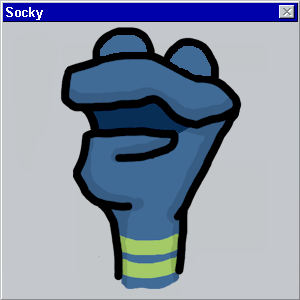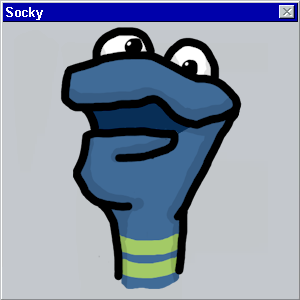Music Ngram Viewer
November 6, 2011 5:34 AM Subscribe
The Music Ngram Viewer from Peachnote tracks appearances of any given note or chord sequence in a corpus of 60,000 optically scanned public-domain classical scores, ranging from the 17th century to the present -- a la what Google Ngram Viewer does for words and phrases. A fuller description with examples. And if you don't like the Google-esque GUI, you can download the raw data and mess with it yourself. (Via Music Hack Day Boston.)
Oh shit yes. This is musical Markov fuel. I only wish there was also metric information available in the raw data—with only melodic movement info you can string together a random melody but it'll either be monotonously paced (one quarter note after another, forever), or you'll have to randomly or by some heuristic choose a phrasing for the generated string apart from the actual distribution of melodic pacing present in the original works.
I did a really small, really naive version of this my freshman year in college, stripping a bunch of Mozart midis semi-manually for note and meter info, and at the time I had intended to create a table that captured both factors, but the small corpus of data I ended up with made too sparse a table to get any interesting results out of it; almost everything ended up being a direct regurgitation because, whatever Joseph II might have said, there just weren't in fact enough notes to really populate a lot of interesting inflection points in the data. I ended up running two different independent tables, one for tone info and one for metric info. Better than no metric info but it wasn't great.
But with this size of a pool of data, you could get a lot more of that data in place in a combined table. Man would I love to play with that.
posted by cortex at 6:57 AM on November 6, 2011
I did a really small, really naive version of this my freshman year in college, stripping a bunch of Mozart midis semi-manually for note and meter info, and at the time I had intended to create a table that captured both factors, but the small corpus of data I ended up with made too sparse a table to get any interesting results out of it; almost everything ended up being a direct regurgitation because, whatever Joseph II might have said, there just weren't in fact enough notes to really populate a lot of interesting inflection points in the data. I ended up running two different independent tables, one for tone info and one for metric info. Better than no metric info but it wasn't great.
But with this size of a pool of data, you could get a lot more of that data in place in a combined table. Man would I love to play with that.
posted by cortex at 6:57 AM on November 6, 2011
If I had that much time to spend I'd rather just write a tune, I think.
posted by Wolfdog at 7:16 AM on November 6, 2011
posted by Wolfdog at 7:16 AM on November 6, 2011
*waves from Music Hack Day Boston*
I'll put our hack up on Projects once it's done :)
posted by mkb at 7:33 AM on November 6, 2011
I'll put our hack up on Projects once it's done :)
posted by mkb at 7:33 AM on November 6, 2011
this is really awesome, but the interface is really difficult to use. you have to enter in your notes perfectly or start over if you make a mistake. ieeee too frustrating to be useful.
posted by kakarott999 at 7:45 AM on November 6, 2011
posted by kakarott999 at 7:45 AM on November 6, 2011
Ngram Viewer's are so awesome, you could build an entire career around them. In the future we'll see all music ngram'd and it will become trivial to create mashup's since you can find similar works quickly and easily. But I just like see how culture changes over time. For example with Google's Ngram viewer I learned the phrase "debut novel" only recently came into popular use, post-1980. That would have been difficult to impossible to know otherwise, since there are no scholars out there keeping track of something like that. We can monitor first appearance in the OED but doesn't say much about actual usage patterns.
posted by stbalbach at 9:09 AM on November 6, 2011
posted by stbalbach at 9:09 AM on November 6, 2011
Wish list:
Even so, the vast corpus makes it a potentially more useful tool than Musipedia.
posted by Dr. Fetish at 11:16 AM on November 6, 2011
- Rhythmic awareness (at least proportional)
- Similarity options (e.g. contour theory)
- Context awareness (e.g. harmony, metric placement)
- Unclear how motivic overlap is handled
- Would love to see API access to raw music data
Even so, the vast corpus makes it a potentially more useful tool than Musipedia.
posted by Dr. Fetish at 11:16 AM on November 6, 2011
Could have used this yesterday.
You mean, Paul McCartney could have used this Yesterday.
posted by dhartung at 3:09 PM on November 6, 2011
You mean, Paul McCartney could have used this Yesterday.
posted by dhartung at 3:09 PM on November 6, 2011
cortex: "Oh shit yes. This is musical Markov fuel."
Somebody actually did this.
posted by mkb at 6:28 AM on November 7, 2011
Somebody actually did this.
posted by mkb at 6:28 AM on November 7, 2011
« Older Sandusky Charged | I'M GOBBLIN' HERE! IIIIII'M GOBBLIN' HERE! Newer »
This thread has been archived and is closed to new comments


I also like that this took place at Microsoft's "New England Research and Development" Center, with its eponysterical abbreviation.
posted by benito.strauss at 5:53 AM on November 6, 2011 [3 favorites]